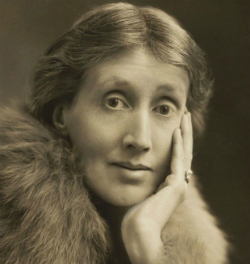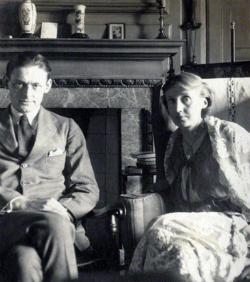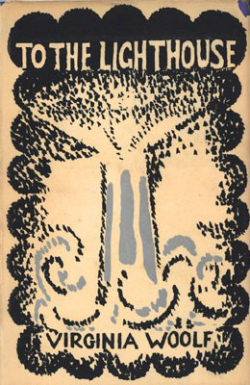Virginia Woolf (1882-1941) was a modern English writer. She played a preponderant role in the English literature of modernism being to the lighthouse his most outstanding work of the period.
According to her, the writer's function is:
“(...) it is to transmit the ever-changing essence of the mind, no matter how complex or intricate its manifestations may be, with the least possible number of extraneous or extraneous elements.”
Biography

Adeline Virginia Woolf was born in Kensington, England, on January 25, 1882. Daughter of a bourgeois family, her father Leslie Stephen was an editor and literary critic. Influenced by her father and with a good education, Virginia became interested in the literary world.
While her siblings were educated in a school, she in turn was educated at home, a fact that made her very angry. At the time, women still didn't have the possibility to study abroad, so she spent many afternoons reading books from her father's library.
When she was just 13 years old, her mother died and almost 10 years later, he was her father.
In 1905, alongside some artists, Virginia participates in the Bloomsbury Group. The meetings took place at her home and the most important characteristics shared by the group were focused on bourgeois society, which they criticized, in philosophy, aesthetics, arts and even in leftist tendencies and liberals.
The following year, one of her brothers died, a difficult and defining moment in the writer's life. In 1912, she marries writer and editor Leonard Woolf and together they found the publishing house. Hogarth Press, In London.

In 1915 she released her first novel “The trip”. From there, Virginia starts working as a writer and only years later she starts to be recognized with the publication of “Mrs Dalloway” in 1925.
Death
Virginia committed suicide in Lewes, England, on March 28, 1941, aged 59 years. Before the event, she wrote two letters, one to her husband, and one to her older sister, Vanessa Bell. Virginia drowned in the River Ouse, and for that, she put stones in her coat pocket.
Here is Virginia's letter to her husband:
“Dear,
I'm sure I'll go crazy again. I feel we can't go through another one of those terrible times. And this time, I won't recover. I start to hear voices and can't concentrate. So I'm doing what I think is the best thing to do. You have given me the greatest happiness possible. You have been, in every way, everything anyone could be. I don't think two people could have been happier until the arrival of this terrible disease. I can't fight anymore. I know I'm ruining your life, that without me you could work. And you will, I know. See, I can't even write this properly. I can not read. What I mean is, I owe all the happiness in my life to you. You've been completely patient with me and incredibly good. I mean – everybody knows that. If anyone could have saved me it would have been you. Everything is gone for me, except the certainty of your goodness. I can't keep screwing up your life. I don't think two people could have been happier than us.
V.”
Curiosities
- Upon her father's death in 1914, Virginia attempted suicide by jumping out of a window. However, she was short and suffered only a few injuries.
- During one of her fits of madness, Virginia claimed that birds sang in Greek.
- Virginia was bisexual and had some affairs with women. And, at age 27, she claimed that she didn't like sex.
Main Works

Virginia's works are full of social, political and feminist issues. Owner of a revolutionary spirit, he wrote novels, short stories and essays. Check out some of the outstanding works below:
- The journey (1915)
- Night and Day (1919)
- Jacob's Room (1922)
- Ms. Dalloway (1925)
- To the lighthouse (1927)
- Orlando: A Biography (1928)
- A roof all yours (1929)
- The waves (1931)
- The years (1937)
- Between Acts (1941)
- The Three Guineas (1938)
Sentences
- “Women, for centuries, served as a mirror to men for possessing the magical and delicious power of reflecting an image of man twice as large as the natural one..”
- “Really, I don't like human nature unless it's all spiced up with art..”
- “The poet gives us his essence, but the prose takes the form of the whole body and mind.”
- “We are torn apart by the truth. The life is a Dream. It's the awakening that kills us.”
- “Some people look for the priest, others take refuge in poetry, I look for my friends.”
- “As a woman I don't own a country. As a woman, my country is the whole world.”
To learn more about British literature, see also:
- Sherlock Holmes: biography and trivia
- King Arthur: legend, literature and trivia
